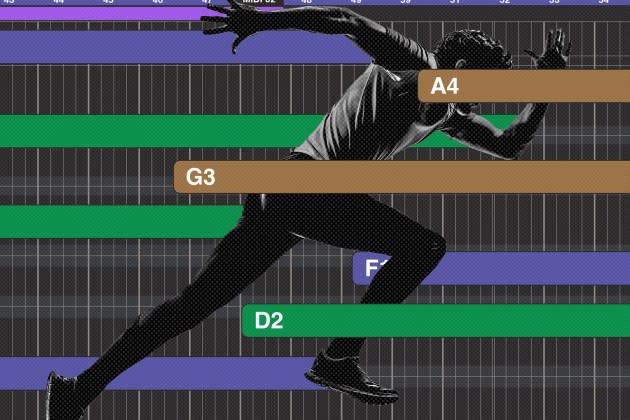Meet The Young Producers Making Beats in Ten Seconds or Less
- Oops!Something went wrong.Please try again later.
- Oops!Something went wrong.Please try again later.

In the past few years, gaming and creator culture have become an increasingly prominent part of the rap world. Think of the growing presence of Twitch streamers, or Ericdoa’s viral “Ninja Taper Fade” moment as an illustration of the overlapping Venn diagram between gamers and young rap fans. “Speedrunning,” a term that refers to gamers seeing how fast they can beat a particular game, has even made its way to the rap world, as young producers post videos of themselves recreating popular rap beats in record time.
17-year-old Lukasz Potoniec, who goes by the name Zestro, recently managed to recreate the beat for Playboi Carti’s track “Magnolia” in under six seconds. Zestro, whose family is from Poland but now resides in Ireland, says he spends between two and three hours each day practicing speedruns. All of this, of course, is documented on his YouTube channel, where he regularly uploads new speedruns that get clipped and recirculated on TikTok. “When I first started out doing the speedruns, it was literally just me beating my own records over and over again,” he says via Zoom. “I started posting them on TikTok and eventually one of my now friends, Rob, saw those Speedruns on TikTok and he started to beat them. And that’s what really started the hype.”
More from Rolling Stone
Robtmb is a 20-year-old producer from Maryland who frequently posts production tutorials and challenges like speedruns to YouTube and TikTok. For some time in December, he and Zestro were in a heated battle to recreate “Magnolia” the fastest. “I think I was just already fast and I was just connected to the DAW [digital audio workstation]. I just knew a lot of the shortcuts and stuff like that, so I just kind of used that to my advantage and I just started making content out of it,” Rob says over Zoom. For weeks, as most people were focused on the holidays, thousands of viewers on TikTok and YouTube would tune in for hours as Rob live-streamed his efforts at beating Zestro’s time, at that point still somewhere around 7 seconds. Eventually, he’d clock in a record-breaking speed only for Zestro to upload a new clip a few days later with a new, even faster time. This went on for weeks. At the moment, Zestro holds the current record for “Magnolia.” For now.
While Rob says he used to play instruments like guitar and piano when he was younger he says, “It’s a harder process than FL Studio. The visual—it’s just really easy. It could be overwhelming for a new FL Studio user, but it’s like a video game to me. And I feel like learning an instrument is the opposite of that really.” Fittingly, Soulja Boy’s “Crank That” was the first song he remembers speedrunning. That song is intertwined with the rise of FL Studio and more visually-oriented music production.
Producer Kenny Beats, whose prolific Discord server is a hub for many young up-and-coming producers, told Rolling Stone last year that the introduction of visually-driven production tools is its own kind of generational marker. “I consider myself the oldest member of the current generation. If we don’t break it down by Gen X, Gen Z, millennial, and we just think of when did people start with visual music?” he says. “That would be once music came to computers and once you could see a waveform and maybe once drum machines were introduced and things became a visual representation of this thing that you were hearing, that’s much different than any person who’s worked in a studio or done any kind of music making from probably the late nineties and before.”
For Rob and Zestro, speedrunning videos are part of another shift in the way people make and release music. Both producers say the videos, and producing content in general, helps them attract customers for their beats. “I think it’s advertising, just getting your name out there, but I just try to get my content to as many people as possible,” Rob says. “Even the people that don’t make beats and stuff, I just try to reach everybody.”
Where there once might’ve been a division between a musician and a content creator, those walls are beginning to crumble, as the online world demands content from each and every one of us. That sounds terrifying to some, but for producers like Rob and Zestro, it’s all part of the game. “For me, it’s the same thing,” Rob says. “I’m a musician and a content creator.”
Best of Rolling Stone
